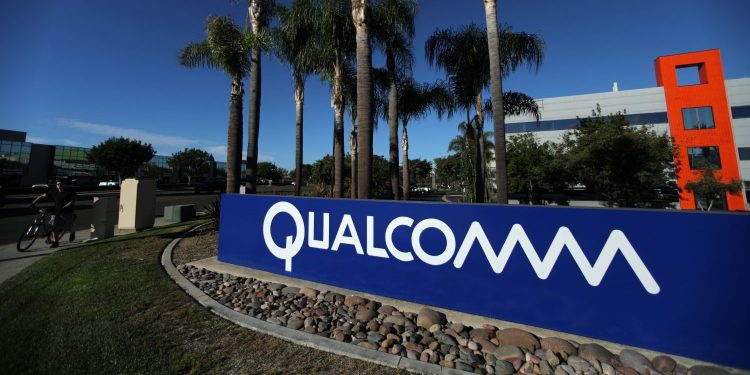On the second day of the federal trial between Qualcomm and Apple, the companies unexpectedly announced that they have settled their wide-ranging legal disputes and agreed to a global patent license. Apple says that it is making an unspecified payment to Qualcomm, and will consequently be able to source Qualcomm chips for six years effective April 1, 2019, with a two-year extension option.
The deal will notably enable Apple to procure faster modems for next-generation iPhones, as well as cellular iPads and Apple Watches. Critically, Apple will now be able to purchase Qualcomm’s 5G modems, which the San Diego chipmaker has sourced to virtually all of Apple’s Android-based smartphone competitors, including chief rival Samsung.
As 5G networks are now rolling out across the world, Apple faced a difficult choice between agreeing to Qualcomm’s terms or choosing between several seemingly slower or smaller suppliers. Relying on Intel as its alternative 5G supplier, the company reportedly faced a 2020 or perhaps later release date for its first 5G iPhone. Samsung’s and Motorola’s first 5G-ready phones arrived in stores earlier this month.
Apple’s dispute with Qualcomm was recently characterized as personal between the companies’ CEOs, but Apple appeared to be the chief antagonist after objecting to an arrangement it had previously accepted. Qualcomm CEO Steve Mollenkopf extended an olive branch to Apple last year by offering a lower patent licensing rate ahead of the 5G rollouts, only to be rebuffed. Apple instead took steps to develop its own modems, even announcing a San Diego engineering campus near Qualcomm’s headquarters.
June 5th: The AI Audit in NYC
Join us next week in NYC to engage with top executive leaders, delving into strategies for auditing AI models to ensure fairness, optimal performance, and ethical compliance across diverse organizations. Secure your attendance for this exclusive invite-only event.
While the settlement promises to “drop all litigation” between the companies, it’s unclear whether related Federal Trade Commission antitrust proceedings against Qualcomm will continue. Apple had accused Qualcomm of improperly leveraging its telecommunications patent portfolio to extract unreasonable licensing terms from numerous device makers, though Apple often sounded more concerned with the business terms — the amount it was paying — than the legality of the arrangement.
Having been cut out of the 2018 iPhone supply chain due to the ongoing disputes, Qualcomm continued to supply Apple with components for legacy devices. After successful patent suits overseas, Qualcomm also forced Apple to stop selling older infringing iPhones made without Qualcomm parts, and begin selling models with Qualcomm chips instead.
Though neither company won all of its skirmishes, the balance appeared to be tipping in Qualcomm’s favor by late 2018. The chipmaker successfully won iPhone sales bans in China and Germany, and an International Trade Commission judge recommended — but didn’t implement — a similar ban in the United States. Beyond removing the prospect of those bans and damages in other cases, today’s settlement immediately eliminates the risk of a $15 billion judgment against Apple, or a $27 billion judgment against Qualcomm, based on damages requested by each party.

